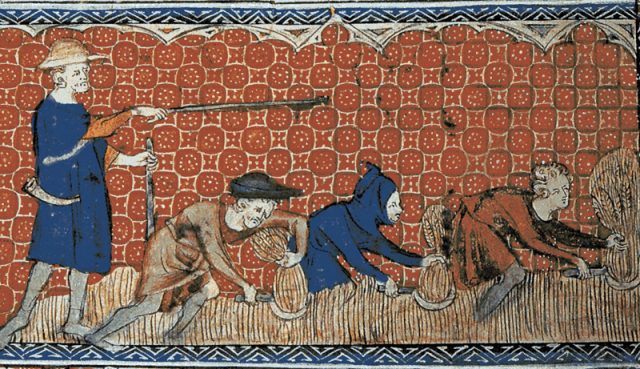From Nancy Bilyeau at the
Vintage News:
“Before capitalism, most people did not work very long hours at all,” wrote Schor in her book. “Consider a typical working day in the medieval period. It stretched from dawn to dusk (sixteen hours in summer and eight in winter), but, as the Bishop Pilkington has noted, work was intermittent – called to a halt for breakfast, lunch, the customary afternoon nap, and dinner.”
Depending on time and place, there were also midmorning and midafternoon refreshment breaks. These rest periods were the traditional rights of laborers, which they enjoyed even during peak harvest times. During slack periods, which accounted for a large part of the year, adherence to regular working hours was not usual. According to Oxford Professor James E. Thorold Rogers, the medieval workday was not more than eight hours.
Plowing and harvesting were backbreaking toil, no doubt, but the peasant enjoyed anywhere from eight weeks to half the year off.
The Catholic Church, mindful of how to keep a population from rebelling, enforced frequent mandatory holidays. Weddings, wakes, and births might mean a week off to celebrate, “and when wandering jugglers or sporting events came to town, the peasant expected time off for entertainment,” according to Business Insider. “There were labor-free Sundays, and when the plowing and harvesting seasons were over, the peasant got time to rest, too.”
In fact, Schor found that during periods of particularly high wages, such as 14th-century England, peasants might put in no more than 150 days a year. “All told, holiday leisure time in medieval England took up probably about one-third of the year,” she wrote in her book. “And the English were apparently working harder than their neighbors. The ancien règime in France is reported to have guaranteed fifty-two Sundays, ninety rest days, and thirty-eight holidays. In Spain, travelers noted that holidays totaled five months per year.” (Read more.)
Share



















No comments:
Post a Comment